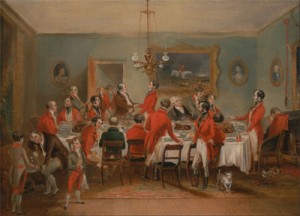 Medieval men saw the inequalities that exist in nature as a cause of unity not division in society. Their realistic approach was far from the individualist mentality of the modern world that holds that each individual is a self-made and autonomous being in competition with others.
Medieval men saw the inequalities that exist in nature as a cause of unity not division in society. Their realistic approach was far from the individualist mentality of the modern world that holds that each individual is a self-made and autonomous being in competition with others.
Typical of the medieval conception is this explanation by a theologian Ralph of Acton: “When God could have made all men strong, wise, and rich, he was unwilling to do so. He wished instead that these men should be strong, those weak; these wise, those foolish; these rich and these poor. For if all were strong, wise and wealthy, one would not be in need of the other.”
The Dominican Giordano of Pisa, preaching in Florence in 1304, suggested that even the rich need the poor since by their generosity, the rich “might earn eternal life through them” (Diana Wood, Medieval Economic Thought, Cambridge University Press, 2002, p. 43).


